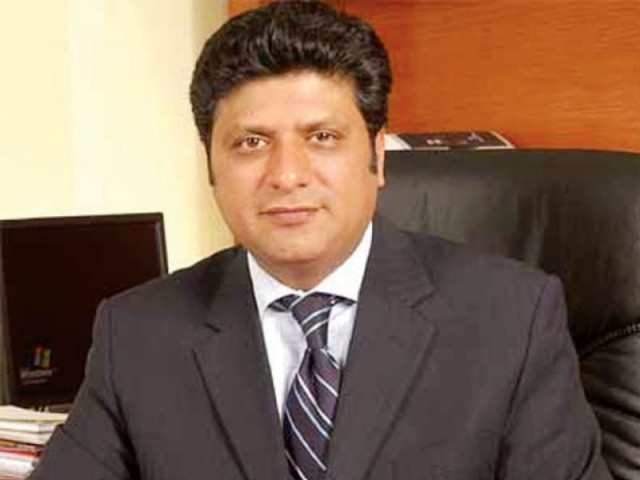Playing by the rules: NADRA chairman insists appointment aboveboard
Tariq Malik responds to govt’s claim, clarifies that his appointment is legal.

Tariq Malik responds to government’s claim, clarifying that his appointment is legal. PHOTO: FILE
National Database and Registration Authority (NADRA) Chairman Tariq Malik has insisted that no rules were violated upon his assumption of office, dismissing a government claim that his appointment was illegal.
Malik told the Islamabad High Court (IHC) in his response on Thursday that he was appointed chairman in August 2013 on an ex officio basis after being interviewed by a selection committee, in accordance with the NADRA Employees (Service) Regulations, 2002, as it was felt that there ought to be greater representation of the management within the authority.
He also clarified that his appointment as member (of the authority) was not a promotion nor did it involve or entail any financial consequences since he did not draw any remuneration.
Malik, formerly general manager networks directorate NADRA, was appointed deputy chairman in August 2008 following NADRA’s desire to expand the portfolio of duties assigned to GM Networks, his reply stated.

Malik also clarified that the creation of the position of deputy chairman was a legitimate exercise of the NADRA chairman’s authority under Section 3(5) of the NADRA Ordinance. Furthermore, he quoted section 3(7) of the ordinance to justify that his appointment as chairman was in accordance with the provisions.
The ordinance, he added, does not lay down any procedural requirements for the appointment of a Chairman however it requires the chairman to be “an eminent professional of known integrity and competence with substantial experience in the field of computer science, engineering, statistics, demography, law, business management, finance, accounting, economics, civil or military administration or the field of registration.”
The chairman added that his academic training and the awards and recognition bestowed on him for his performance and accomplishments bear testament to the fact that he was fully qualified to be appointed as chairman.
Malik also provided the court with summaries moved by the Interior and the Establishment Divisions for his appointment as NADRA chief, adding that this established that the exercise of authority in appointing him as chairman was considered and reasoned. The then chairman Ali Arshad Hakeem was appointed chairman of the Federal Board of Revenue, and given that Pakistan was in the run-up to national elections wherein NADRA was involved with the ECP, “it was deemed essential to provide continuity within the management and appoint the Petitioner (Tariq Malik) as Chairman in view of the performance within the authority as deputy chairman for almost four years,” said the Interior Ministry’s summary.
“Unlike private individuals the government is not free to dispense state largesse and execute and terminate contracts at the will or desire of the incumbent rulers,” said the reply submitted before the IHC. It added that in concluding or terminating contracts in an arbitrary manner, such acts are subject to judicial review and appropriate orders can be passed under Article 199 of the Constitution.
The Establishment Division further requested that the prime minister may relax the condition of open advertisement with regards to the appointment of Tariq Malik as NADRA chiarman, and that his terms and conditions would be settled separately.
Published in The Express Tribune, December 13th, 2013.



















COMMENTS
Comments are moderated and generally will be posted if they are on-topic and not abusive.
For more information, please see our Comments FAQ